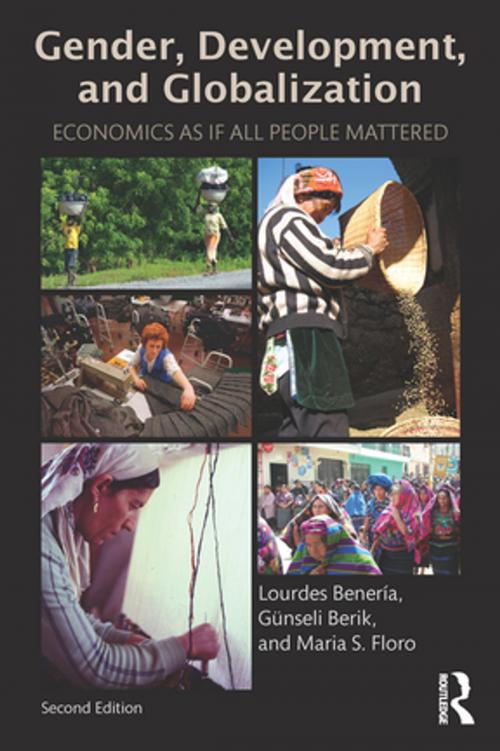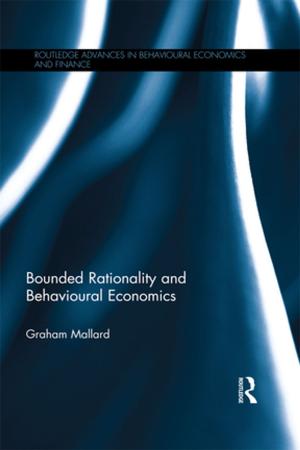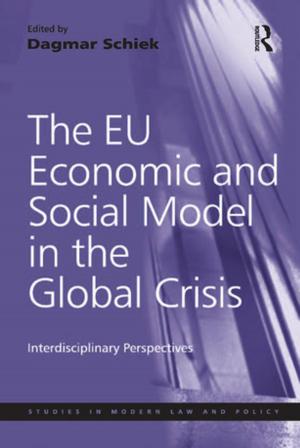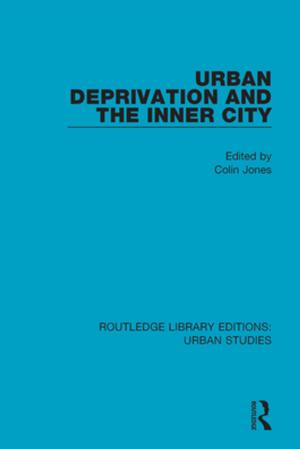Gender, Development and Globalization
Economics as if All People Mattered
Business & Finance, Economics, International Economics, Economic Development, Nonfiction, Social & Cultural Studies, Political Science| Author: | Lourdes Beneria, Günseli Berik, Maria Floro | ISBN: | 9781136263651 |
| Publisher: | Taylor and Francis | Publication: | July 24, 2015 |
| Imprint: | Routledge | Language: | English |
| Author: | Lourdes Beneria, Günseli Berik, Maria Floro |
| ISBN: | 9781136263651 |
| Publisher: | Taylor and Francis |
| Publication: | July 24, 2015 |
| Imprint: | Routledge |
| Language: | English |
Gender, Development, and Globalization is the leading primer on global feminist economics and development. Lourdes Benería, a pioneer in the field of feminist economics, is joined in this second edition by Gunseli Berik and Maria Floro to update the text to reflect the major theoretical, empirical, and methodological contributions and global developments in the last decade. Its interdisciplinary investigation remains accessible to a broad audience interested in an analytical treatment of the impact of globalization processes on development and wellbeing in general and on social and gender equality in particular.
The revision will continue to provide a wide-ranging discussion of the strategies and policies that hold the most promise in promoting equitable and sustainable development. The authors make the case for feminist economics as a useful framework to address major contemporary global challenges, such as inequalities between the global South and North as well as within single countries; persistent poverty; and increasing vulnerability to financial crises, food crises, and climate change. The authors’ approach is grounded in the intellectual current of feminism and human development, drawing on Amartya Sen’s capability approach and focused on the importance of the care economy, increasing pressures faced by women, and the failures of neoliberal reforms to bring about sustainable development, reduction in poverty, inequality, and vulnerability to economic crisis.
Gender, Development, and Globalization is the leading primer on global feminist economics and development. Lourdes Benería, a pioneer in the field of feminist economics, is joined in this second edition by Gunseli Berik and Maria Floro to update the text to reflect the major theoretical, empirical, and methodological contributions and global developments in the last decade. Its interdisciplinary investigation remains accessible to a broad audience interested in an analytical treatment of the impact of globalization processes on development and wellbeing in general and on social and gender equality in particular.
The revision will continue to provide a wide-ranging discussion of the strategies and policies that hold the most promise in promoting equitable and sustainable development. The authors make the case for feminist economics as a useful framework to address major contemporary global challenges, such as inequalities between the global South and North as well as within single countries; persistent poverty; and increasing vulnerability to financial crises, food crises, and climate change. The authors’ approach is grounded in the intellectual current of feminism and human development, drawing on Amartya Sen’s capability approach and focused on the importance of the care economy, increasing pressures faced by women, and the failures of neoliberal reforms to bring about sustainable development, reduction in poverty, inequality, and vulnerability to economic crisis.















